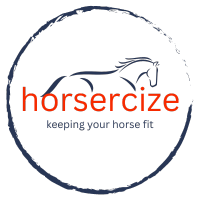Introduction
“Am I making progress?" This common question often challenges riders starting their pole work journey. While major breakthroughs catch our attention, smaller signs of development frequently go unnoticed. Understanding these subtle progress markers helps maintain motivation and ensures you're moving in the right direction for polework success.
Recognizing progress in pole work doesn't require complex assessments or detailed scoresheets. Simple, observable changes in your horse's movement, attitude, and training responses provide reliable indicators of development. By knowing what to look for, you can easily track improvement and adjust your training approach when needed.
In this article, we'll explore the key signs that show your pole work training is succeeding. These straightforward progress markers help you recognize development while maintaining focus on effective training.
What Are Signs of Progress in Polework?
Key progress markers in polework include:
These indicators show development in both physical capability and mental engagement, reflecting real training advancement.
Your horse's physical responses provide clear signs of progress. Watch for more consistent stride length, better balance during turns, and smoother transitions between poles. These improvements often appear gradually but indicate significant development in body awareness and control.
Mental progress shows equally through subtle changes in your horse's attitude and approach. Growing confidence appears as more relaxed yet focused work around poles. Increased willingness to approach exercises and maintained attention during sessions reflect developing understanding and engagement.
How to Track Progress Simply
Track progress by conducting weekly movement observations, noting confidence markers, recording training responses, monitoring exercise engagement, and observing development patterns over time.
Tracking progress doesn't require complicated systems. Simple weekly observations of your horse's movement quality, confidence level, and training responses provide valuable insight into development. Keep basic notes about significant changes or improvements you notice during sessions.
Focus on observing:
Physical Progress Markers
Watch for improved body control and movement quality during polework sessions. Your horse may show better coordination, more consistent rhythm, and enhanced balance. These physical improvements often develop gradually but indicate real progress in strength and body awareness.
Regular polework typically leads to visible improvements in:
Mental Progress Signs
While physical markers show visible progress, mental development often precedes these changes. Notice how your horse approaches poles, maintains focus, and responds to exercises. Growing confidence and willingness to engage indicate valuable mental progress in your training journey.
Look for:
When to Expect Changes
Progress in polework follows individual patterns, but most horses show early signs of development within several consistent training sessions. Initial improvements often appear in mental engagement and basic movement quality, followed by enhanced physical capabilities.
Remember that steady, incremental progress builds lasting results. While some changes appear quickly, deeper physical development requires consistent work over time. Professional guidance helps ensure optimal progression and continued improvement.
Next Steps
Understanding progress markers helps track development and maintain training focus. For more detailed guidance on pole work progression and structured training approaches, explore our comprehensive pole work course. Knowledge ensures proper development while maximizing training benefits.
Eager to learn more - then have look at our complete guide to polework for horses.

[…] buy cialis cheap […]
[…] cialis for daily use […]
[…] sildenafil citrate 25mg online […]
[…] sildenafil oral jelly 100mg […]
[…] best ginseng supplements for men […]
[…] cialis canada pharmacy […]
[…] generic sildenafil 25mg […]
[…] viagra 50 milligrams […]
[…] 50 mg sildenafil price […]
[…] cheap viagra 100 online […]
[…] cialis canada online […]
[…] generic cialis in canada […]
[…] 50mg viagra cost […]